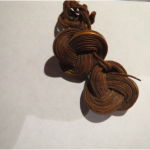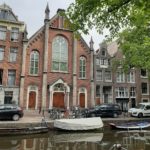MIT OpenCourseWare – Urban Studies And Planning
![]() The Department of Urban Studies and Planning (DUSP) is a department within the School of Architecture and Planning at MIT.
The Department of Urban Studies and Planning (DUSP) is a department within the School of Architecture and Planning at MIT.
It is comprised of four specialization areas (also referred to as Program Groups): City Design and Development; Environmental Policy and Planning; Housing, Community and Economic Development; and the International Development Group. There are also three cross-cutting areas of study: Transportation Planning and Policy, Urban Information Systems (UIS) and Regional Planning.
Since its inception in 1933, the Department of Urban Studies and Planning has consistently remained one of the top planning schools in the country. Now totaling close to 60 teaching faculty members (more than half of whom are full-time tenured and tenure-track faculty), it has the largest planning faculty in the United States.
The Department is organized around the following core questions of engagement and progressive change: “Can we make a difference in the world? Can we design better cities? Can we help places grow more sustainably? Can we help communities thrive? Can we help advance equitable world development?” Our mission statement is as follows:
We are committed to positive social change. Our moral vision is translated into professional education in distinct ways:
We believe in the abilities of urban and regional institutions to steadily improve the quality of life of citizens.
We emphasize democratic decision-making involving both public and private actors, and acknowledge the necessity of government leadership to ensure greater social and economic equality.
We foster a positive approach to technological innovation as a major force of social change.
We trust that the built environment can meet the needs of diverse populations and serve as a source of meaning in their daily lives.
Read more: http://ocw.mit.edu/courses/urban-studies-and-planning/
Filip de Boeck – Of Rhythm And Amalgamation: The Knot As Form Of The Urban
JWTC, April 2014. Drawing on mathematical theories of the Moebius strip, Filip De Boeck unravels the complex weaving and knotting together of forms of sociality and survival in urban Congo. Inhabiting the urban, writes De Boeck, requires strategies of amalgamation that resist being mapped linearly. [The text that follows was part of the panel on ‘The Form of Confusion,’ convened by Jane Guyer, and including work by Moises Lino e Silva, Kabiru Salami, and Soumhya Venkatesan. It was presented at the Johannesburg Workshop in Theory and Criticism, WISER, 28th of June 2013].
Read more: http://jwtc.org.za/volume_6/filip_de_boeck.htm
Professor AbdouMaliq Simone – Urban Dwellers And The Changing City
Steal away, steal away home, I ain’t got long to stay here
Many of today’s urban dwellers often face sorrow with the loss of their homes, work and everyday life. Similar to the plantations that used African slaves, the spread of contemporary mega-developments continues to expand standardised social and economical interactions without really changing their form or function.
At the same time, efforts made by residents in major cities of the world, such as Sao Paolo, Jakarta, Mexico City, or Delhi, reveal what the city has largely been all along – a place where materials can be taken out of their usual contexts, uses, and meanings, then pieced together to produce unforeseen and not readily controllable outcomes.
Through this Knowledge Works lecture Professor AbdouMaliq Simone will examine the urban processes of various modern cities highlighting how they function and how they create specific ways of existing, thinking, seeing, claiming, affecting, informing, and making that are bound to no one, yet bound everyone.
Sorrow thus becomes the tactic: belong nowhere and everywhere.
Professor AbdouMaliq Simone is an urbanist with a particular interest in emerging forms of social and economic intersection across diverse trajectories of change for cities in the Global South.
Simon Fraser University – Urban Studies – Theses, Dissertations, And Other Required Graduate Degree Essays
Summit is the Simon Fraser University research repository. It is in place to bring together the scholarship of SFU researchers and was developed as a part of a broader open access strategy, recognizing that faculty and researchers wish to share their work with the largest possible audience that they can. Examples of scholarship that are deposited in Summit include article preprints or final refereed manuscripts (the author’s version of the article, not the publisher’s published version); research reports; book chapters; images of artwork; conference presentations; video; theses.
Read more: http://summit.sfu.ca/collection/174
Kaushik – Makoko, A Floating Slum In Nigeria
amusingplanet.com. April 2014. The shanty town of Makoko is located on a lagoon on the edge of the Atlantic Ocean, a stone’s throw from the modern buildings that make up Lagos, the biggest town in Nigeria and the main commercial and industrial center. In this sprawling slum on the waterfront, adjacent to the 10 km long Third Mainland Bridge, tens of thousands of people live in rickety wood houses raised on slits. There are no official census records, but estimates suggest some 150,000 to 250,000 people live here.
Makoko used to be a small fishing village built by fishermen who came from Benin to make money more than a hundred years ago, before it grew into an illegally constructed one-square-kilometer urban settlement. The population now consists mainly of migrant workers from West African countries, trying to make a living in Nigeria. The oily black water is no longer suitable for fishing; it emits a pungent smell, and a thick layer of white scum gathers around the shack stilts.
Read more: http://www.amusingplanet.com/makoko- slum-in-nigeria.html
The Cyberhood
![]() The Cyberhood’s mission is to encourage critical thinking about the the plight of communities of color, conditions in the inner city, and the problems of low-wage white workers. The website’s goal is to connect students, scholars, practitioners, and activists from across the racial and class divide in order to build meaningful relationships. The building of such connections, we believe, will strengthen the struggle to understand and transform inner cities and the metropolitan regions of which they are a part.
The Cyberhood’s mission is to encourage critical thinking about the the plight of communities of color, conditions in the inner city, and the problems of low-wage white workers. The website’s goal is to connect students, scholars, practitioners, and activists from across the racial and class divide in order to build meaningful relationships. The building of such connections, we believe, will strengthen the struggle to understand and transform inner cities and the metropolitan regions of which they are a part.
This area of the Cyberhood contains articles and working papers that may be of interest to scholars, students, and practitioners working in communities of color and poor central city neighborhoods:
http://www.thecyberhood.net/featured_papers



![makoko-3[2]](http://rozenbergquarterly.com/wp-content/uploads/2014/04/makoko-32-300x171.jpg)
